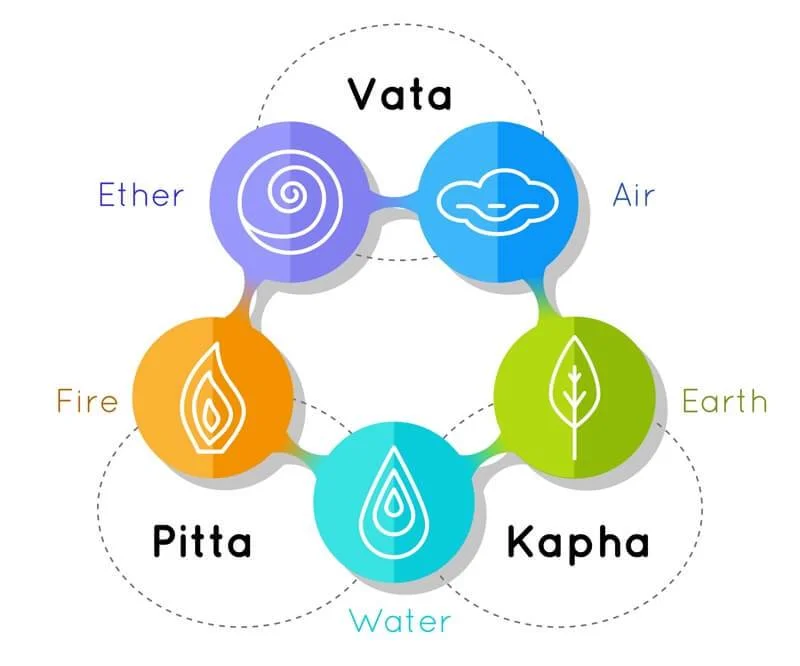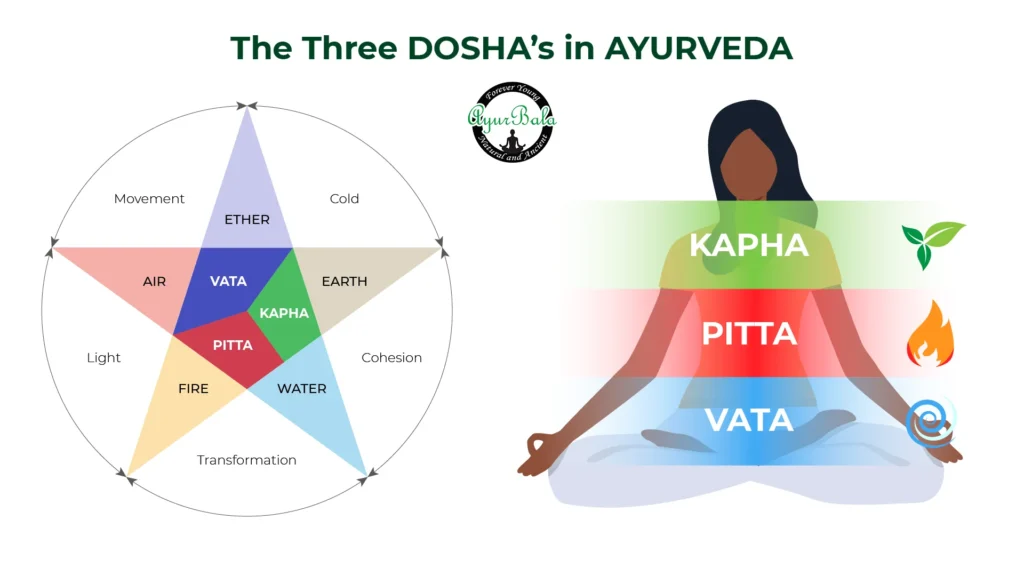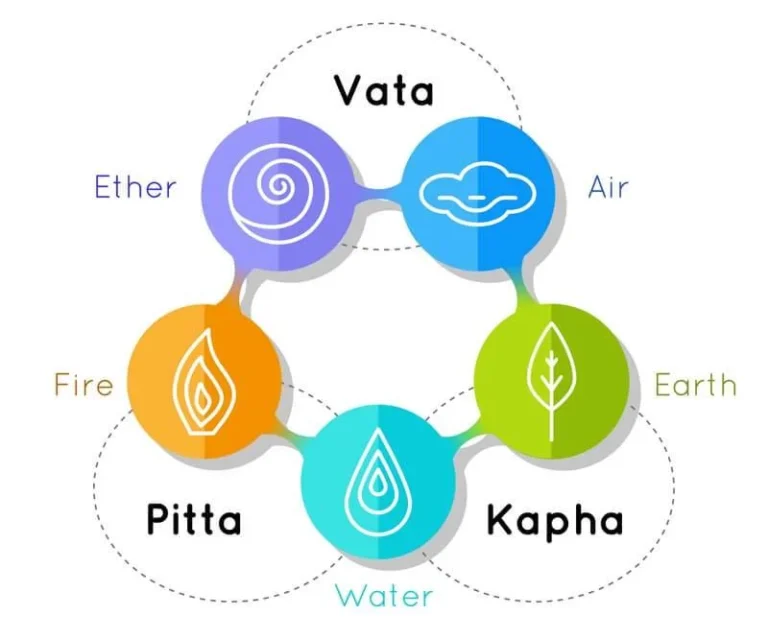Rooted in ancient Indian scriptures known as the Vedas, Ayurveda provides a holistic approach to health and wellness. At its core are the concepts of the five elements (Pancha Mahabhutas) and the doshas, forming the foundation of its philosophy. Understanding these principles can guide us toward achieving optimal health and balance.
The Five Elements in Ayurveda
Ayurveda teaches that all matter in the universe comprises five essential elements, each playing a vital role in our existence:
- Earth (Prithvi): Represents stability and structure, forming the foundation of all living and non-living things.
- Water (Jala): Symbolizes fluidity and adaptability, governing bodily fluids, circulation, and cohesion.
- Fire (Agni): Embodies transformation and digestion, managing metabolism and energy processes.
- Air (Vayu): Denotes movement and mobility, influencing circulation, respiration, and nerve impulses.
- Space (Akasha): Reflects the expansive, ethereal aspect of existence, creating the context for interaction among the other elements.
These elements combine uniquely in every individual, forming the basis for their physical, mental, and emotional traits.
Doshas: Your Unique Constitution
The interplay of the five elements manifests as three primary doshas—Vata, Pitta, and Kapha. Each dosha represents a combination of elements, influencing your constitution (Prakriti) and overall health:
 Vata Dosha (Air + Space)
Vata Dosha (Air + Space)
- Qualities: Dry, cold, light, and mobile.
- Functions: Governs movement-related processes like circulation, breathing, and nerve impulses.
- Balanced Traits: Creativity, agility, and enthusiasm.
- Imbalance Symptoms: Anxiety, insomnia, dry skin, and digestive disturbances.
Pitta Dosha (Fire + Water)
- Qualities: Hot, sharp, intense, and fluid.
- Functions: Regulates digestion, metabolism, and body temperature.
- Balanced Traits: Intelligence, focus, and determination.
- Imbalance Symptoms: Irritability, inflammation, and acidity.
Kapha Dosha (Earth + Water)
- Qualities: Heavy, stable, moist, and slow.
- Functions: Provides structure, lubrication, and immunity.
- Balanced Traits: Compassion, calmness, and nurturing behavior.
- Imbalance Symptoms: Lethargy, weight gain, and congestion.
Balancing the Doshas for Health
The essence of Ayurveda lies in balancing the doshas to maintain health and harmony. Lifestyle, dietary adjustments, and self-care practices can help align the doshas with your constitution:
- Vata Balancing: Favor warm, nourishing foods like soups and stews. Establish a regular routine with grounding practices like yoga and meditation.
- Pitta Balancing: Embrace cooling, hydrating meals such as cucumbers and melons. Engage in calming activities like mindful breathing.
- Kapha Balancing: Opt for spicy, light foods and invigorating exercises to stimulate energy and metabolism.
Embracing Ayurveda for Holistic Wellness
Ayurveda empowers individuals to take charge of their well-being by making conscious choices aligned with their unique constitution. Incorporating Ayurvedic principles into your daily routine fosters harmony, vitality, and a deeper connection to your inner self.
- Diet: Choose foods that balance your dominant dosha.
- Lifestyle: Establish routines like regular exercise, meditation, and sufficient sleep.
- Self-Care: Explore Ayurvedic herbs and therapies to rejuvenate and nourish the body.




